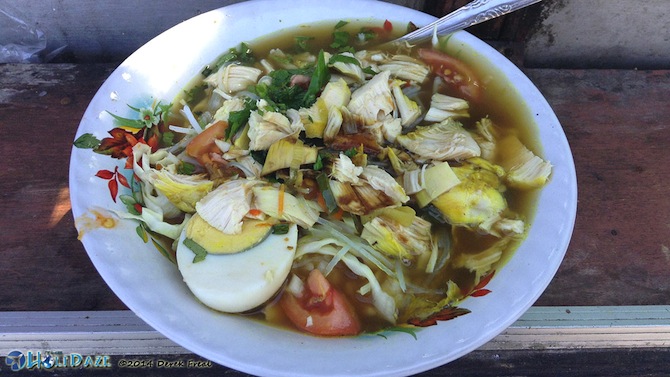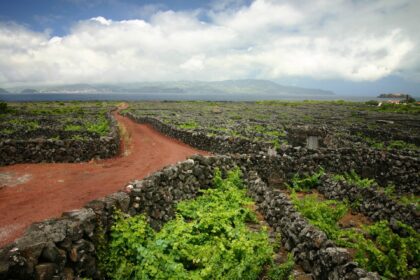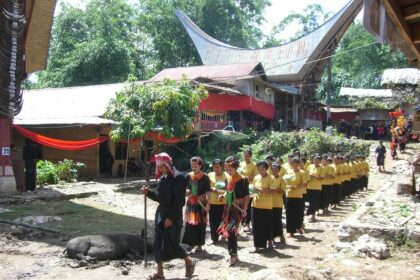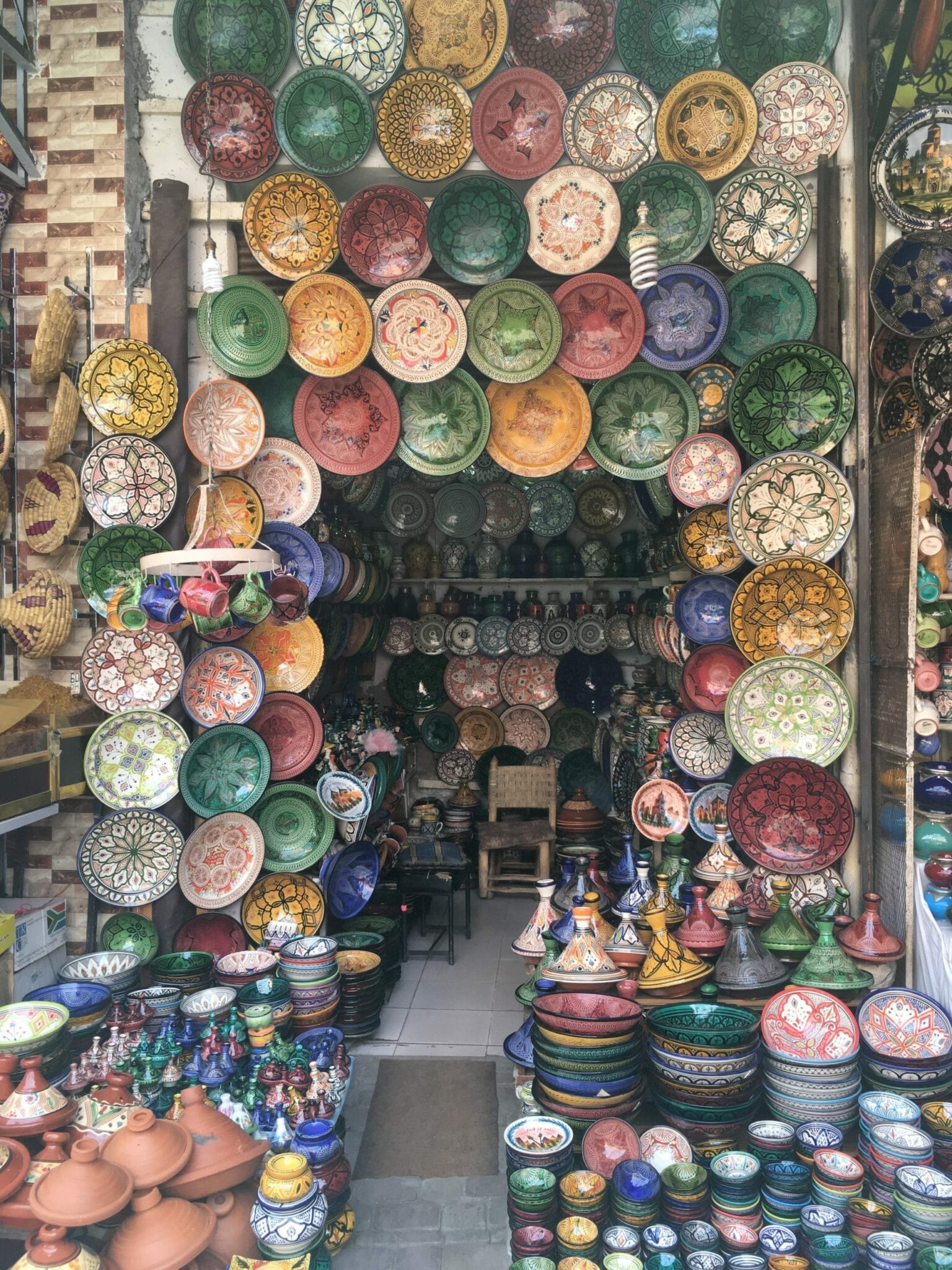Looking to visit Indonesia? While Bali has much to offer, there’s no denying tourism has taken over this beautiful destination in a way that can make it difficult to experience the country in an authentic manner.
Luckily, there are many ways to immerse yourself in local culture if you just look beyond this popular city.
To help you plan your itinerary, Epicure & Culture caught up with Indonesia expat and expert Derek Freal of The Holidaze to give you the inside scoop.
1. Please tell us a bit about your experience traveling in Indonesia. What brought you there and what kinds of experiences did you have?
After a few years away from Asia I developed the desire to return. I looked at a map and said “Hmmm, I know Chinese food…Japanese food…Vietnamese and Thai and Filipino food…but what is Indonesian food?” So I bought a one-way ticket to Jakarta. Originally I only planned on staying a month, but here it is a year later and I’m still here, still exploring. Of course I have to do a visa run every two months, something I usually turn into a full-fledged trip somewhere new, but I’m always coming back to Indonesia.
So far I’ve participated in traditional games like panjat pinang, explored overlooked cultural villages like Banyu Sumurup and Taglad, visited pristine islands that few foreigners ever set eyes on — such as Nusa Pendia — starred in a tourism film on Sumatra, given speeches at schools and even did a television appearance on a national game show.

2. For those wanting to experience local Indonesian culture, what’s a top experience recommendation?
It’s hard to choose, but I would most recommend coming for Indonesia’s Independence Day, August 17th, and going out to a small traditional village to see how they celebrate. This is easiest to do if you have a local friend or can speak at least a tiny bit of Bahasa Indonesia, so unfortunately it is not for everyone; however, that is also what makes it so special.
An easier alternative is to celebrate the holiday in Yogyakarta, an amazing city that loves foreigners and foreigners love. They have a bunch of festivities down Marlioboro and Kraton.
3. No trip to Indonesia would be complete without savoring the local food culture. For someone wanting a traditional meal, what would you recommend they try?
That’s a tricky one because the food varies so much from region to region. Take for example a simple dish, Soto Ayam, a kind of chicken veggie soup served with rice, which you add in to the soup at your own pace. The ingredients and composition are different in every city and there are literally dozens of different types of soto to try.
Other good dishes include babi guling (Bali, or a few Balinese restaurants/warungs in larger cities), nasi liwet (Solo), gudeg (Yogyakarta), rawon (Malang / Surabaya / Banyuwangi) and paniki (Sulawesi). I wrote a whole guide on what to eat and where, which you can read by clicking here.

4. While visiting Indonesia you became fluent in the local language. Do you have any tips for anyone wanting to do the same? Are there any crucial phrases people should know in Indonesia besides the obvious?
For starters, don’t use any of the Bahasa in your guidebook. This is too formal and no one in Indonesia speaks like that. You might as well be saying “I’m a foreigner” and just speaking in English. For example, if you want to ask the price, do not say “berapa harga ini?” (how much the price of this?) Simply say “berapa?”.
Also, always remember that the letter ‘c’ in Bahasa Indonesia is pronounced ‘ch’
Language Basics:
Me: Aku (informal) / gue (slang) — Saya is too formal
You: Kamu (informal) / lo (slang) — Anda is too formal
Thanks: Makasih (informal) — Terima kasih is formal
Excuse Me: Permisi (Best used when approaching someone to ask a question or when trying to pass through locals in a crowd or inside a store.)
Where Is: Dimana…
Searching For: Cari…
Other Useful Words/Phrases:
“Ojek” A motorcycle taxi, less expensive and faster than a real taxi.
“Makasih ya” Although the literally translation is “thanks yes” this is a much more common way to say thanks. Or if you want to say “thank you very much” say “makasih banyak”
“Tidak berapa bule” “Don’t give me the white guy price.” You can also add in “mas” (brother) or “mbak” (miss) to the end.
“Aku punya motor” “I have a motorcycle” (even if you don’t, this phrase will keep the touts from bothering you with offers for transportation)
“Kamu gokil!” “You are really cool (in an awesome way)” (useful if someone gives you a good price, directions, or other assistance)
“Hacep!” “Drink until you cannot drink anymore!” (great for when having beers with locals)
“Satu bule cukup disini” “One white person here is enough” (good for laughs if surrounded by locals)
5. For those wanting to assimilate into local culture in Indonesia, what’s one etiquette rule they should remember to avoid offending locals?
*When eating with your hands, as is common practice in Indonesia, only use your right hand. The left hand is for wiping after using a squat toilet.
*Do not say the F word, period. The first time it got me taken into an immigration interrogation room and the second time it got me locked up abroad and eventually deported. Read more about this here.
6. What’s one must-pack item for those traveling to Indonesia?
Hand sanitizer. There are lots of dirty surfaces here and few places to wash your hands.
7. One of the greatest parts about traveling is interacting with locals. What was one of your most memorable local encounters when visiting Indonesia?
I motorcycled all of the way around Lombok Island last year. Quite a few tourists visit here, usually just as a waypoint en route to the Gilis or to hike Rinjani. None ever visit the eastern side of the island. There are no hotels or fancy stores there, just a bunch of small villages where few people speak English. Even so the locals were happy to welcome me into their house and let me stay the night. Definitely recommended! It will help tremendously if you know at least a few basic words of Bahasa, but it isn’t necessary.

8. While most people have heard of Bali, what’s one lesser-known destination in Indonesia you would recommend and why?
Definitely Nusa Penida. The crazy thing is this island is only a 40-minute fast boat ride from Bali, yet very few foreigners ever visit here. The island is full of pristine beaches, small traditional villages, scenic viewpoints, and tons of excited young kids all yelling “hello mister!” as you pass by.
Whether you spend a month, a few days, or one week in Bali, make sure to visit Nusa Penida!
9. Were there any accommodations you stayed in during your trip to Indonesia that helped introduce you to local culture that you would recommend to other travelers?
Couchsurfing. It is easy to find accommodation and the locals love the opportunity to practice their English and show foreigners their culture.
About Derek Freal
Derek Freal arrived in Indonesia for a one month trip, but more than a year later he is still there, exploring and wandering around in wonder. Now he speaks and even blogs (occasionally) in Bahasa Indonesia. From cultural events to extreme foods, Derek has done it all and aims to inspire more people to visit the real Indonesia beyond Bali. Feel free to contact him with any of your Indonesia travel questions via Twitter, Facebook, Instagram, Google+, Pinterest and his blog.
Jessica Festa
Latest posts by Jessica Festa (see all)
- A Culturally-Immersive Adventure In Mongolia’s Altai Mountains - Jul 8, 2023
- This Recipe Sharing Platform Supports Women In The Culinary Industry (Labneh Recipe Included!) - Nov 5, 2020
- Hiking The Mohare Danda Community Eco-Trek In Nepal - Jun 3, 2020
- 6 Important Questions For Choosing A Responsible Yoga Retreat - May 18, 2020
- How To Create & Grow A Profitable Blogging Business (Ethically) - Jan 18, 2020








Indonesia has so many wonderful places to explore. Thank you for sharing.